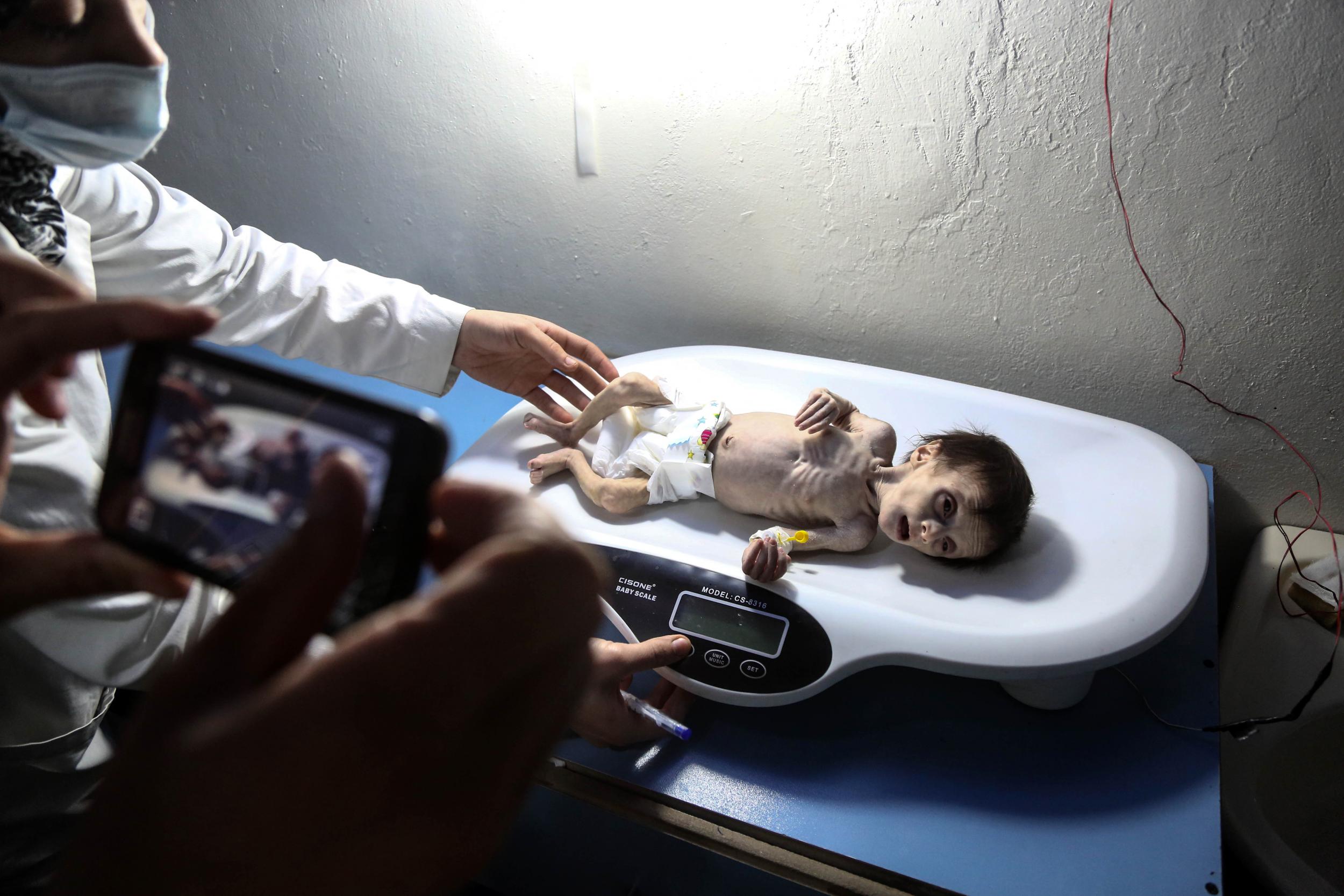Syrian civil war: UN seeks urgent medical evacuations from besieged East Ghouta
Nine people injured in air strikes have already died waiting to be removed from rebel area despite ceasefire agreement

At least 500 Syrians are in urgent need of medical evacuation from a besieged rebel-held district of Damascus, the UN has warned, after government air strikes and shelling have decimated the area.
East Ghouta, to the east of Damascus proper, has been under siege since 2013. Over the last two weeks it has faced ferocious attack from President Bashar al-Assad’s forces which monitors say have killed 150 civilians.
The area is also grappling with severe food shortages: 11.9 per cent of children in the area are suffering from acute malnutrition, which is the highest rate recorded in the country since the civil war began six years ago.

Nearly half of the 400,000 people trapped there are believed to be children, Unicef says.
The UN announced on Wednesday that a 48-hour ceasefire had been agreed to evacuate the sick and wounded, including those in need of cancer treatment and kidney dialysis.
By Friday, however, the UN’s humanitarian coordinator said that people were still waiting to leave, and nine had died as a result of the delay. The UK-based Syrian Observatory for Human Rights said it had recorded a lessening in fighting but not a complete cessation.
“It would be incredible if [Syria and ally Russia] cannot deliver a simple evacuation of mainly women and children, a 40-minute drive to Damascus city,” Jan Egeland told reporters in Geneva.
“We're ready, we're willing to go. We can handle the security. We have all of the tools available. We need a green light.”
“A two-day truce is not nearly enough for civilians facing grave violations of international law - including bombardment and besiegement - but it is a window of opportunity to save the lives of the most desperately in need of treatment,” Thomas Garofalo, the InternationaL Rescue Committee (IRC) Middle East public affairs director, said on Thursday.
The renewed calls for an end to the hostilities in Ghouta came as delegates arrived in Geneva for the eighth round of UN brokered peace talks between the Syrian government.
The war - now in its seventh year - has left an estimated 500,000 people dead and displaced more than half of Syria’s pre war population of 22 million people from their homes.
Ghouta is supposedly covered by a de-escalation zone deal brokered by Turkey, Iran and Russia earlier this year – but monitors and rebels say fighting has continued on many fronts.
Even smugglers’ supply lines have been cut off following a government offensive in April, leading to strangled access to food, fuel and medicine and huge price increases. With the renewed military offensive and cold conditions setting in, the rebel enclave is bracing for what could be its harshest winter yet.
Joint UN and Syrian Red Crescent aid convoys have only been able to deliver enough food and medical supplies for 68,000 of the 400,000 civilians trapped there over the past two months. Only a quarter of the people living in Ghouta have received food aid - and much of that has been in the form of one-off packages.
Amnesty International said on Thursday that Mr Assad’s forces were using banned Soviet Era cluster munitions on the area.

Cluster munitions are particularly deadly because they release sub-munitions or bomblets on impact which can land over areas as large as a football pitch; they are banned under international law because of the indiscriminate damage they cause.
“Assad sees this as the final attack on [east] Ghouta”, Valerie Szybala of Washington-based monitoring body Siege Watch told The Independent last week.
“[He] does not intend to stop until the entire besieged enclave is a smoking pile of rubble and dead bodies.”
Join our commenting forum
Join thought-provoking conversations, follow other Independent readers and see their replies
Comments
Bookmark popover
Removed from bookmarks